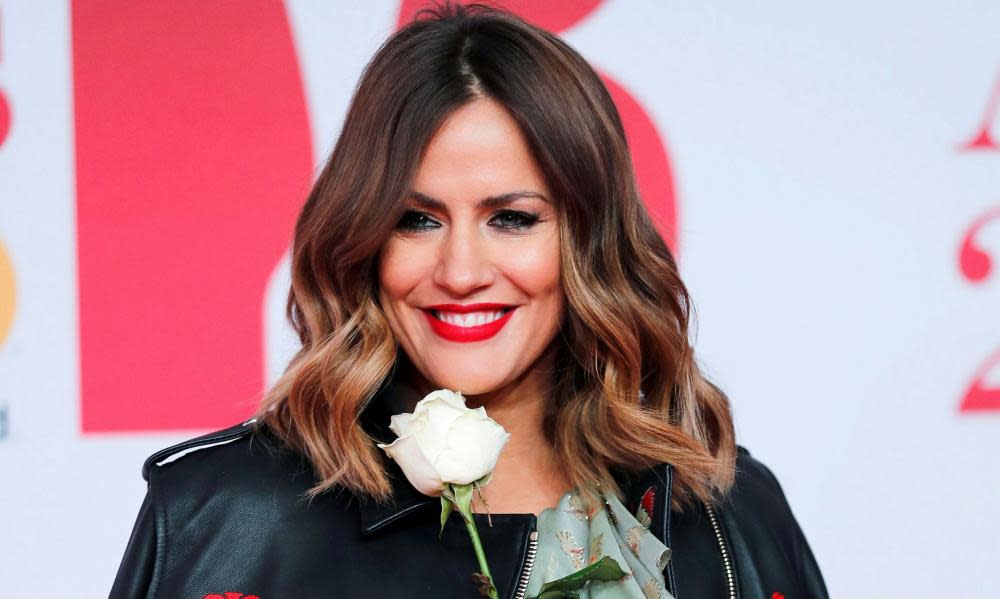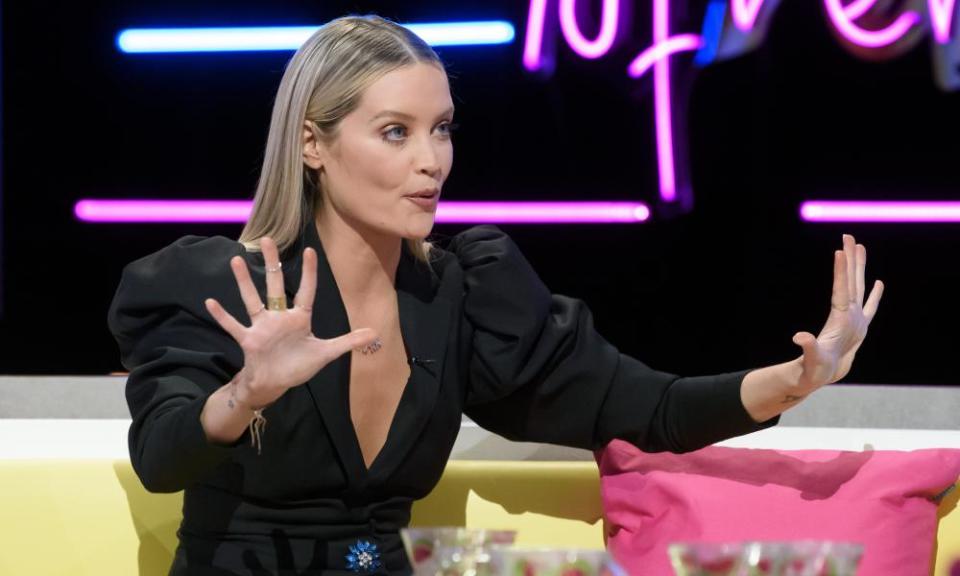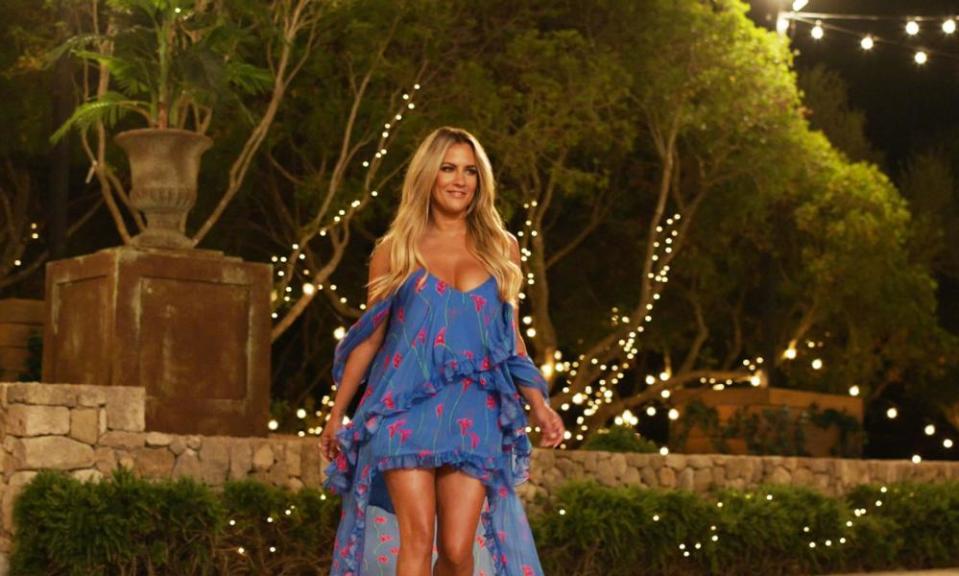Does showbiz press have Caroline Flack's 'blood on its hands'?

Stephanie Davis is a singer, an actor in Hollyoaks, a former runner-up on Celebrity Big Brother and a single mum. She was also a friend of Caroline Flack’s, and on Saturday evening, distraught at the news of her suicide, she posted an emotional video on her Instagram feed addressed to the media “and to everyone who has blood on their hands”.
She also launched an online petition calling for “new and stricter laws around safeguarding celebrities and people in the public eye” from the press, which to date has attracted more than 615,000 signatories.
“Straightaway, I knew why,” Davis told the Guardian. “It was because of what I had seen written about her. How does someone possibly take all that? So I thought I needed to start this campaign, because something needs to change now.”
Flack’s shocking death last weekend shook the entertainment world, convulsed social media and led to widespread calls for something to be done, even if a single culprit, as in any suicide, is impossible to identify, and an easy solution difficult to find.
Amid a circular firing squad of blame, however – with the Crown Prosecution Service, the Met police, Flack’s former employer ITV, online trolls and campaign groups all attracting their share of recriminations – attention has focused once again on Britain’s showbiz press, and their relationship with a celebrity world that has become wilder and more populous since the advent of reality TV.

Angered by the loss of their friend, other celebrities have been emboldened to speak up.
Laura Whitmore, a friend of Flack who replaced her as Love Island host, filmed a paparazzo who was trying to photograph her with her boyfriend, and posted it to her Twitter feed. “It’s a culture that has got out of hand, and it’s only by showing it that we can change it,” she explained.
“Many in the public eye are scared to speak about their own experiences with the press, because we are ‘lucky’ to be in the public eye,” Chloe Madeley, a TV presenter and reality TV regular, wrote on Instagram. “Everyone has been warned and intimidated into a corner, and tragedies like this are the result of it.”
It’s a culture that has got out of hand, and it’s only by showing it that we can change it
Laura Whitmore
The celebrity backlash has found support from the press regulation campaign group Hacked Off, which has again called for the voluntary regulator Ipso to be replaced, saying: “Had an independent regulator existed the cruel and distressing coverage Caroline Flack endured would at the very least have been properly sanctioned and remedied.”
Tempting as it may be to damn the tabloids and gossip sites out of hand, however, celebrity agents, managers and tabloid journalists who spoke to the Guardian described a more complicated picture. In a media climate with more competition than ever for people’s attention – and where one’s career can depend on visibility – celebrities may feel like they have no option other than to maintain close relationships with journalists.
After being arrested and charged for allegedly assaulting her boyfriend in December, which she denied, Flack had employed the former Sun editor Dominic Mohan, now working in crisis communications, to help manage her media profile.
And as a 40-year-old whose big break came in the early noughties, Flack’s relationship with the media was in some ways from a different age, with one person who knew her saying her approach was “very old school”. While many modern celebrities offer limited, mandated interviews to promote a new show, saving more personal material for tightly controlled Instagram accounts, Flack still socialised with many of the journalists who wrote about her.
I would question how many of those relationships are 100% genuine
Showbiz journalist
A column by the Sun’s associate showbiz editor, Clemmie Moodie, paying tribute to her “brilliant friend” laid bare their complicated relationship, saying they spent nights out partying, but did not speak for three months after the Sun published a story Flack didn’t like.
They eventually made up, she wrote, “and that was the beauty of Caroline. She was a pro – in the true, old-school fashion of celebrity. She recognised the need for the press.”

While Moodie was seen out with Flack for years, one showbiz journalist who dealt with former Love Island star said: “I would question how many of those relationships are 100% genuine.” Another celebrity manager, whose clients include reality TV contestants and musicians, laughed openly when asked about the authenticity of the relationships. Stories of celebrities feeling obliged to offer intimacies to ward off negative press, or being terrified to offer explicit criticism of their treatment by the papers, are widespread.
Whether legislation is the solution is open to question: several of the specifics mentioned in Davis’s petition are already illegal or against editors’ guidelines, while some of the material that was said to be most upsetting to Flack – including an advert by the campaign group Fathers 4 Justice calling her a domestic abuser – was never published in a newspaper, but circulated widely in an online world of often toxic commentary.
Why not switch off? “It’s a difficult thing to do, especially if you get sucked into that world of reading what is said about you, because you have that automatic human response of wanting to defend yourself,” says one agent. With such rapid celebrity turnover, they note, staying offline can be career-threatening. In any event, even if one public figure should opt to back away, the public appetite ensures many others are willing to take their place.
Easy solutions may not be obvious, but Davis is determined to do what she can for her friend, and has released a song written about her own emotional struggles to raise money for mental health charities.
“I just think we all need to remember what we should be trying to achieve here, and it should be kindness.” she says. “Not tearing each other down for a few likes on an article, or trolling, or whatever it may be. It’s really got to change.”

 Yahoo News
Yahoo News 
